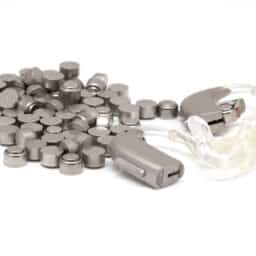Infections Linked to Hearing Loss

Hearing loss is mostly caused by aging or exposure to loud noises over time. However, sometimes infections have the power to cause hearing loss. The following infections can have negative impacts on hearing health, some targeting the ear directly and others as a side effect. Swimmer’s Ear (Otitis Externa) Swimmer’s ear is an infection of…
Impact of Hormones on Hearing Loss

Hormones play a critical role in several bodily functions, and some research suggests that this also includes hearing. Fluctuations in hormone levels can affect the inner ear, potentially leading to hearing loss or other auditory issues. Understanding how different hormonal changes may impact the body might allow you to take steps to protect your hearing….
Can Holiday Toys Damage Your Child’s Hearing

It’s important to keep your child’s hearing safe, especially when it comes to their favorite toys. Many toys can produce sound levels that may not seem loud to adults but could be damaging to young ears if played with for extended periods. If a toy is played with for more than eight hours a day,…
What To Do If You Lose Your Hearing Aid

Losing something as vital as a hearing aid can be incredibly stressful, but don’t worry. Follow these steps to increase your chances of finding it quickly. Start by Checking Your Immediate Area As soon as you realize your hearing aid is missing, stop moving and ask those around you to do the same. This will…
What to Know About Hearing Aid Battery Safety

Hearing aid batteries can provide you with days or weeks of good hearing. But knowing how to handle them is key to the safety of you, your pets and young visitors in your home. Below, we review what you should know about hearing aid battery safety. Battery Ingredients If your hearing aids take disposable button…
Winter Fun With Hearing Aids: Tips for Icy and Snowy Sports

With the winter season rolling in, cozy outings and snowy vacations are on the horizon. Whether it’s a spin on the ice, a ski trip or a short-lived snowball fight, the season offers plenty of fun activities. But if you’re among the 7.1% of adults aged 45 and over who wear a hearing aid, you…
Spotting the Signs of Hearing Loss in Your Teen: A Parent’s Guide

As parents, it can feel hard to give your children the tools they need to thrive in every area of life. During their teen years, that includes more than just academics and friendships—it also means looking out for their hearing health. How Common Is Teen Hearing Loss? Approximately two or three per 1,000 children in…
Understanding Elderspeak and How To Avoid It With Respectful Communication

Hearing loss or cognitive changes can make everyday conversations more challenging for many older adults. Unfortunately, these challenges often lead others to adopt a condescending communication style known as “elderspeak.” While usually well-intentioned, elderspeak can be demeaning and harmful, affecting the confidence and well-being of older adults with hearing loss. How To Identify Elderspeak Elderspeak…
Tinnitus and Mental Health: Coping with the Emotional Impact

Tinnitus, characterized by a ringing or buzzing sound in the ears without an external source, can lead to anxiety, depression and other somatic symptoms. Understanding the link between tinnitus and mental health, as well as adopting effective management strategies, can help to manage some of the distracting symptoms that impact quality of life. Symptoms of…
What to Know About Hearing Aids and Virtual Meetings

In today’s remote work age, virtual meetings have become a staple in both professional and personal settings. However, for the 38.8 million Americans who could benefit from hearing aids, these meetings can present unique challenges. With the right strategies, you can navigate virtual meetings successfully and ensure clear communication. Here are some effective tactics to…
